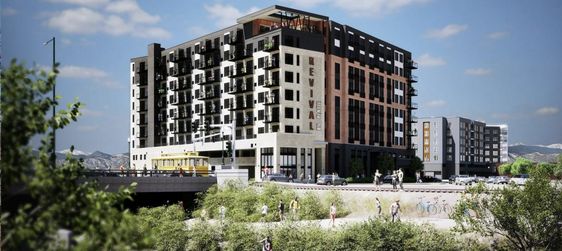Exploring Multi-Generational Homes: Features and Advantages
Read latest blogs and articles from Housystan

The Information mentioned here was last updated on:
21/2/2026Exploring Multi-Generational Homes: Features and Advantages
Introduction: The Rise of Multi-Generational Living
In recent years, more families are embracing the concept of multi-generational homes. Driven by evolving social and economic trends, this housing style brings together several generations under one roof—grandparents, parents, and children cohabiting and sharing daily life. As the housing market adapts to new demands, multi-generational living is on the rise, offering unique solutions to affordability, care needs, and family dynamics. This article examines the defining features and compelling advantages of multi-generational homes, providing insight for families considering this increasingly popular arrangement.
- Verified Tenants/Buyers
- Unlimited Property Listing
- Zero subscription/charges fee
Defining Multi-Generational Homes
Multi-generational homes are residences designed or modified to accommodate more than one generation of a family. Unlike traditional single-family homes, these spaces prioritize flexibility and privacy while encouraging togetherness. With separate living areas, shared kitchens, and multiple entrances, these homes cater to the needs of extended families. Whether through custom builds or creative renovations, the goal is to create a supportive environment where everyone feels at home.
Key Features of Multi-Generational Homes
1. Separate Living Quarters
A hallmark of multi-generational homes is the presence of distinct living spaces. These can include private suites for grandparents, basement apartments for young adults, or even attached ‘in-law’ units. Each area often features its own bedroom, bathroom, and sometimes a kitchenette, ensuring comfort and independence for all residents.
2. Shared Common Areas
While privacy is important, shared spaces are central to the multi-generational experience. Open-concept kitchens, spacious living rooms, and communal dining areas encourage interaction and foster a sense of community. Well-designed homes balance private retreats with welcoming, accessible gathering spots for family members of all ages.
3. Accessibility and Safety Elements
Accommodating older family members or those with mobility challenges is a priority in multi-generational homes. Features such as step-free entrances, wider doorways, grab bars, and walk-in showers are commonly incorporated. These enhancements make daily life safer and more comfortable for everyone, especially seniors.
4. Flexible Floor Plans
Adaptability is a key characteristic of these homes. Flexible floor plans allow spaces to be repurposed as family needs change—nurseries become home offices, or a guest room transforms into a teenager’s suite. This versatility ensures the home remains functional and relevant for years to come.
Advantages of Multi-Generational Living
1. Financial Benefits
One of the strongest motivators for multi-generational living is economic efficiency. By pooling resources, families can share mortgage payments, utilities, and maintenance costs. This arrangement can make homeownership more attainable, especially in high-cost housing markets. Additionally, shared living can reduce childcare and eldercare expenses, as family members support one another.
2. Strengthened Family Bonds
Living together fosters deeper family connections. Grandparents can play an active role in grandchildren’s lives, passing down traditions and wisdom. Parents benefit from built-in support networks, while children enjoy the unique opportunity to grow up surrounded by extended family. These interactions nurture a sense of belonging and shared responsibility.
3. Enhanced Caregiving and Support
Multi-generational homes make it easier to care for aging relatives or young children. Elderly family members receive companionship and assistance, reducing the need for costly outside care. Conversely, grandparents can help with babysitting or school pickups, offering invaluable support to working parents. This collaborative approach to caregiving benefits every generation.
4. Efficient Use of Space and Resources
Combining households leads to more efficient use of living space. Instead of maintaining separate homes, families can maximize shared amenities, from laundry facilities to outdoor areas. This consolidation reduces waste, streamlines routines, and can even lessen the environmental impact of multiple residences.
5. Cultural Continuity and Tradition
For many families, multi-generational living is rooted in cultural tradition. Homes become central hubs for celebrations, storytelling, and the preservation of heritage. By living together, families can pass down languages, recipes, and customs that might otherwise fade over time, reinforcing cultural identity.
Potential Challenges and Solutions
While multi-generational living offers many benefits, it also presents unique challenges. Navigating different lifestyles, schedules, and parenting styles can lead to tension. Privacy concerns and generational gaps may require sensitive handling. Open communication is essential—establishing house rules, respecting boundaries, and scheduling regular family meetings can help address issues before they escalate. Thoughtful home design, such as soundproofing or dedicated quiet zones, can further ease potential friction.
Designing the Ideal Multi-Generational Home
Architects and homebuilders are increasingly responding to the demand for multi-generational housing. New construction often includes adaptable spaces, dual master suites, and first-floor bedrooms. Renovation projects might convert garages or basements into separate apartments, or add modular units to existing properties. The goal is to create homes that can evolve alongside the family, offering both autonomy and togetherness.
Conclusion: Embracing the Future of Family Living
Multi-generational homes reflect a shift towards collaborative, resilient family living. As economic pressures and care needs continue to shape housing choices, more families are discovering the rewards of sharing space and resources. With thoughtful design and open communication, multi-generational living can offer financial savings, emotional support, and a stronger sense of community. For those willing to embrace its challenges, this housing model provides a sustainable and enriching way to thrive together in today’s world.